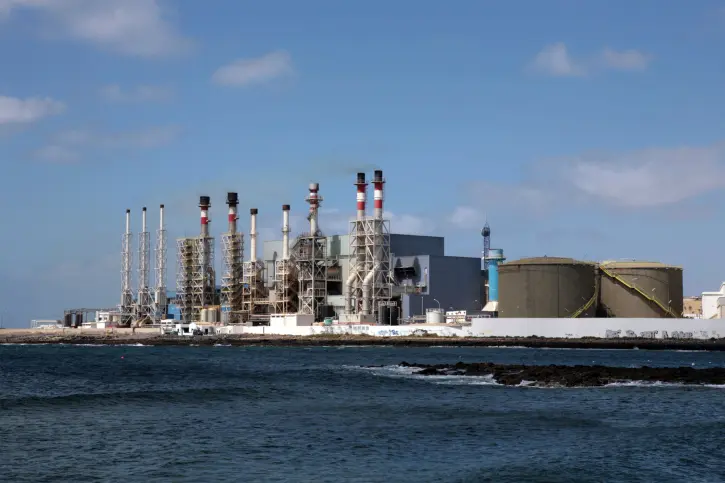Why Fiberglass Strainers are the Best Choice for Desalination Plants
Considering that the United Nations projects that 14% of the world’s population will receive its drinkable water from desalination plants by 2025, contractors building desalination plants should educated themselves about the types of basket strainers available for these projects and make sure they understand which types of strainers are best suited for desalination plants.
At Fluidtrol, we recommend fiberglass strainers for desalination plants thanks to their exceptional corrosion resistance — always a problem when dealing with saltwater.
Let’s take a closer look at why fiberglass strainers are the best choice for desalination plants, easily outperforming metal strainers, which are vulnerable to saltwater corrosion, by lasting years and costing a fraction of the price.
How Basket Strainers Are Used in Desalination Plants
Basket strainers are typically incorporated into the chemical feed systems that desalination plants use to mix the disinfectant that ensures the drinking water the produce is potable.
Basket strainers can also be used in the heat exchanger co-generation systems employed by many desalination plants to power their operations. These types of plants use seawater not just as the raw material they process to create drinking water, but also to cool their power generation equipment. Basket strainers are especially important in these situations because they remove particulates that could compromise heat exchangers and boilers.
Metal Basket Strainers and Saltwater Corrosion
Saltwater, particularly seawater, is full of sodium chloride, or table salt, which also happens to be a very low-pH salt that accelerates rust.
Meanwhile, traditional basket strainers are made of metal — typically some sort of steel alloy — which makes them vulnerable to rapid degradation when they come into contact with seawater.
To counteract this, many basket strainer manufacturers use a variety of corrosion-resistant metals for saltwater applications, including Monel 400, Hastelloy, and different grades of alloyed steel such as and marine-grade 316 stainless:
- Monel 400 – a nickel-copper alloy (67% Ni; 23% Cu) that is resistant to saltwater, steam, and caustic solutions
- Hastelloy – a corrosion-resistant nickel-molybdenum-chromium alloy (57% Ni; 16% Mo; 16% Cr)
- 316 Stainless Steel – steel nominally with 17% Cr and 12% Ni for increased corrosion resistance
While using these alloys certainly slow down corrosion, they never counteract it completely.
Doing so requires working with a fundamentally different material — one that is inherently immune to rust. Enter the fiberglass strainer.
Fiberglass Strainer Features
As a manufacturer of fiberglass strainers, we can confidently say that they perform just as well as metal basket strainers. Moreover, the do so at a much lower initial and lifetime costs thanks to the affordability of the material and its inherent resilience.
If designed and manufactured correctly, fiberglass strainers are more resistant to corrosion and cheaper than basket strainers made using the “rare earth alloys” mentioned above.
When designing fiberglass strainers, we’ve found that the following epoxy vinyl ester resins produce the best results, depending on the application:
- Derakane 411 – features impact resistance and less cracking due to temperature, pressure, and mechanical shocks
- Derakane 470 – has exceptional mechanical properties at high temperatures
- Hetron 922 – exhibits excellent corrosion resistance and high impact strength
- Hetron 970 – provides maximum solvent resistance
Fiberglass strainers made using these resins can be built to withstand up to 150 PSI and can tolerate temperatures of up to 220° Fahrenheit.
Metal Strainers vs Fiberglass Strainers
Now that we have a sense of how basket strainers are used in desalination plants and are familiar with the challenges facing any strainer that’s put to work in a saltwater environment, let’s see how metal and fiberglass strainers stack up in three important areas: cost, longevity, and strength.
Cost
Fiberglass strainers are always going to be less expensive than similar metal strainers built for saltwater applications.
Because there are so many metallic options on the market, it’s difficult to say exactly how much cheaper any individual fiberglass strainer will be. In our experience, though, a metal strainer will be anywhere from 20% to 1,000% more expensive than one of our fiberglass strainers, depending on the quality of the metal strainer’s construction and the alloy used.
Longevity
In situations where seawater needs to be filtered, such as a desalination plant, fiberglass strainers will last significantly longer than metal strainers. A typical fiberglass strainer can stand up to saltwater for decades whereas a metal strainer could give out after mere months of use.
The main reason for this vast difference in lifespan is that fiberglass strainers do not corrode, completely eliminating that cause of failure.
Even the threat of local corrosion, which is often the bane of a coated metal strainer, is eliminated with fiberglass strainers since they are as corrosion resistant on their inner surfaces as they are on their outer ones.
Strength
How do fiberglass strainers stack up against metal strainers in terms of strength? Obviously, plastic is not as strong as metal, although fiberglass does have a much higher strength-to-weight ratio than any metal.
Most basket strainer applications — including those used in desalination plants — do not require the higher strength afforded by metal strainers. Properly designed fiberglass strainers, such as our line of FRP strainers, are engineered to exceed all mechanical strength requirements using ASME Section X calculations for fiber-reinforced pressure vessels, making them more than adequate to the task.
Conclusion
If you’re looking to build a desalination plant or replace existing basket strainers, there’s no reason not to consider fiberglass strainers. They’ll cost much less than comparable metal strainers and will last much longer.
We began manufacturing fiberglass strainers in 1992 and some of those original units are still in service.
If you’re interested in acquiring your own fiberglass strainers, take a look at our FRP strainers, which feature dual-layered fiberglass construction. And if you don’t see exactly what you need — or if you just want to find out more about fiberglass strainers — please contact us.
